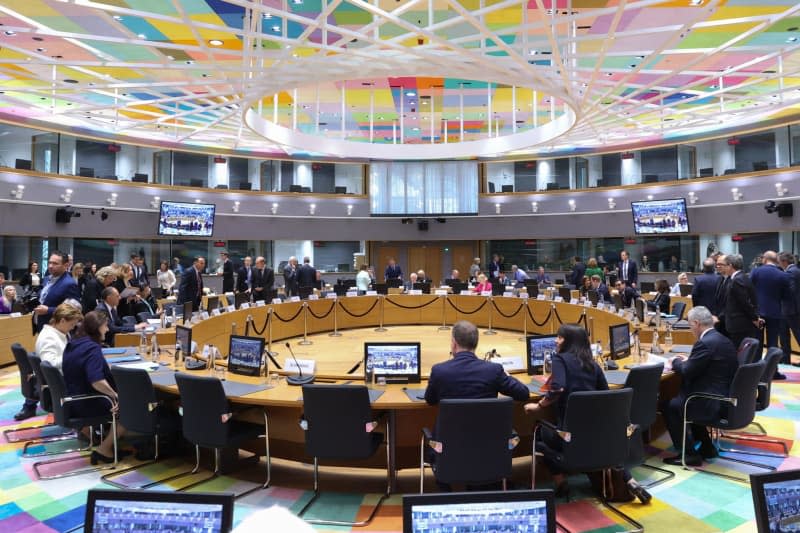EU foreign ministers have approved 1.4 billion euros in military aid to Ukraine, with the package financed for the first time with proceeds from frozen assets of the Russian Central Bank, diplomats told DPA on Monday.
Top EU diplomat Josep Borrell said ahead of the ministers’ meeting in Luxembourg that the funds are needed to reach Ukraine quickly and “avoid any blockade.”
The approval comes as a welcome boost for Kiev amid Hungary’s continued opposition to other packages from an off-budget fund, the European Peace Facility (EPF), worth more than 6 billion euros.
Every EU member state has a veto on EPF payments and Hungary has been blocking a number of Ukraine-related payments for almost a year. A support fund of €5 billion is also blocked.
EU diplomats had not expected a breakthrough in the EPF standoff with Hungary. As a result, Ukraine’s military aid from the proceeds is a useful alternative means of support.
Careful legal footwork to enable relief
EU member states in May first approved using the proceeds to buy weapons for Ukraine, but it was unclear when the first payments would be made due to Hungary’s veto.
A legal analysis showed that since Hungary abstained from voting on the decision to use the frozen assets for Ukraine, and that the new aid comes from the assets of the Russian Central Bank and not from EU funds, the veto Budapest does not apply.
Borrell said Monday that the finances “cannot be stopped. It must be used. We have a legal procedure to prevent any blockage.”
Hungary opposes military aid to Ukraine for fear of an escalation of the conflict with Russia and expresses doubts about Western support for Ukraine, preferring instead to call for a ceasefire.
Hungarian Prime Minister Viktor Orbán has previously linked decisions on aid to Ukraine to the release of EU funds for Hungary, which had been frozen over rule of law concerns.
Military and financial aid for Ukraine
Military aid to Ukraine uses interest and other profits from the assets, but not the underlying assets themselves, which will remain frozen.
In total, 90% of the money will finance military aid, while 10% will go directly to Ukraine as financial aid.
Under the agreement, Germany and the Czech Republic have been selected as the first to use the proceeds to supply Ukraine with air defense equipment and artillery shells, EU diplomats said.
Other EU Member States may be able to manage the proceeds in the future.
According to the European Commission, approximately €210 billion worth of assets belonging to the Russian Central Bank have been frozen in the EU.
Brussels-based financial institution Euroclear, which holds the lion’s share of the assets, recently announced that the assets had earned around 4.4 billion euros in interest by 2023.
Russian LNG was the first to target the EU sanctions
EU foreign ministers also adopted new punitive measures to crack down on sanctions evasion and prevent Russia from acquiring Western technology to make weapons.
Another 69 individuals and 47 entities involved in Russia’s invasion of Ukraine have been sanctioned with an asset freeze and a travel ban to the European Union.
The new salvo of sanctions is the first to target Russia’s multibillion-dollar liquefied natural gas (LNG) sector.
These punitive measures ban ports such as Zeebrugge in Belgium from shipping Russian LNG to countries outside the EU after a nine-month transition period.
Russian President Vladimir Putin’s so-called “shadow fleet”, which is used to circumvent sanctions, is also being targeted. This includes 27 specific ships.
German opposition to the 14th sanctions package had to be overcome, EU diplomats said, because Berlin was concerned that the 14th sanctions package went too far, especially on subsidiaries.
EU diplomats said a compromise had been reached, meaning measures halting exports to Russia – the so-called “No Russia” clause – will not apply to subsidiaries for the time being. The issue needs to be reconsidered.
Ukrainian Foreign Minister Dmytro Kuleba informed his EU colleagues about the war situation via a video call.
The Foreign Ministers of the Western Balkans were also invited to discuss foreign policy.








